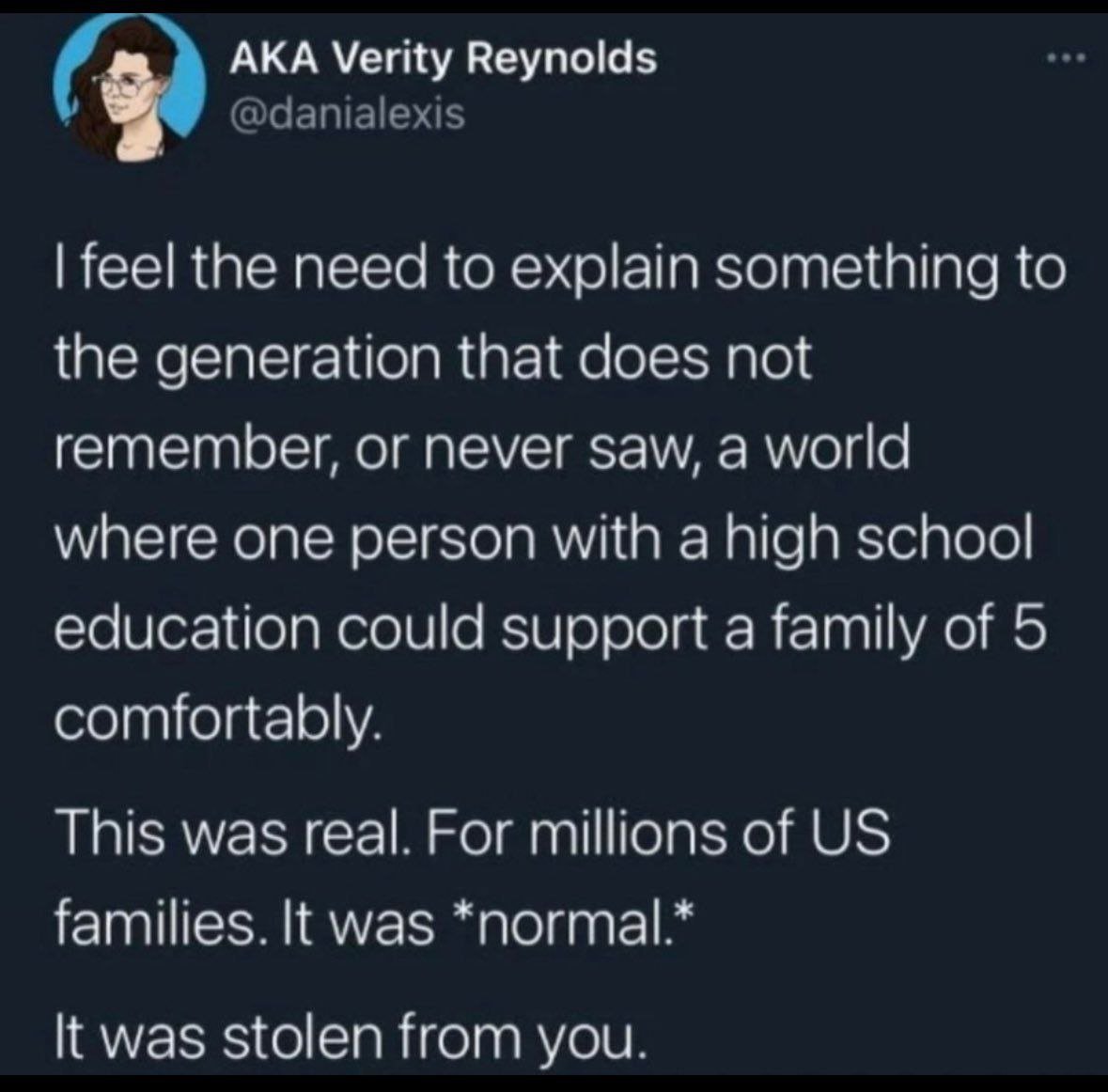this post was submitted on 13 Mar 2024
1525 points (97.9% liked)
Political Memes
5501 readers
2004 users here now
Welcome to politcal memes!
These are our rules:
Be civil
Jokes are okay, but don’t intentionally harass or disturb any member of our community. Sexism, racism and bigotry are not allowed. Good faith argumentation only. No posts discouraging people to vote or shaming people for voting.
No misinformation
Don’t post any intentional misinformation. When asked by mods, provide sources for any claims you make.
Posts should be memes
Random pictures do not qualify as memes. Relevance to politics is required.
No bots, spam or self-promotion
Follow instance rules, ask for your bot to be allowed on this community.
founded 1 year ago
MODERATORS
you are viewing a single comment's thread
view the rest of the comments
view the rest of the comments

And none of that would change the fact that other countries are now able to buy goods they once bought from US manufacturers from other countries.
China, Japan, Germany, and other modern industrial powerhouses that were decimated after WWII are now competition for US manufacturers. Even if the US went full on protectionist and kept their own factories from offshoring, that wasn’t going to prevent China (or Germany, or France, or whomever) from pursuing its own industrialization, and then going after countries that were buying American in the mid 20th century to buy from them instead.
A good example to look at right now is Australia — in the 1950s, they were dominated by American vehicles, either importing them directly from the US, or via locally built Holdens (which may have been manufactured locally, but the company was owned by General Motors — the profits flowed back to the United States), with some small British cars thrown in. But today only two American brands even make it into the Top 10 — Ford at #3, and Tesla at #8. All of the other brands are now primarily out of Asia (Toyota, Mazda, Nissan, Mitsubishi, Kia, Hyundai, Isuzu).
The US “not offshoring” manufacturing wouldn’t have changed this. And the story is the same across all of the rest of the world — back in the 1950s, the world was buying from the US (or to a lesser extent Canada and the UK). Today they don’t have to — and US protectionism was never going to change that. Forcing American companies to stay in the US and only hire Americans would have just made life for Americans more expensive, and wouldn’t have changed the fact that money that had been flowing into the US during the post-war era had more or less dried up once the major economies in Europe and Asia had re-industrialized.